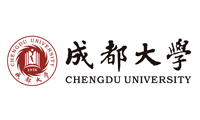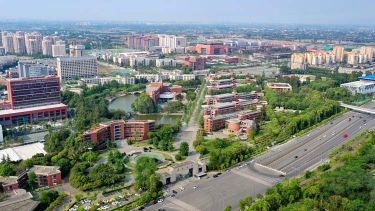
Chengdu University collaborates with regional, national and international academics to promote global academic innovation and knowledge sharing
Chengdu University in China has orientated its academic and research projects to contribute to the country’s higher education innovation and talent introduction plan, known as the 111 Project. Established by China’s State Administration of Foreign Experts Affairs alongside the Ministry of Education, the project aims to foster knowledge sharing and research and development, highlighting the importance of international collaboration and communication.
The project was launched to attract 1,000 experts and scholars from the world’s top universities, focusing on building 100 centres of disciplinary innovation. Chengdu University believes that research and the exchange of academic knowledge are only truly worthwhile if they deliver real-world impact.
The university and its 111 Project base prioritise both national and international needs in all its undertakings. For example, foreign experts and the institution’s academics work collaboratively to achieve both economic and social improvement. Researchers and academics at the base actively collaborate with domestic and international organisations, such as the National Natural Science Foundation of China, the International Association of Advanced Materials and the Institute of Advanced Materials in Sweden.
Academics at the base have received approval for 29 national, provincial, and ministerial-level scientific research projects. They are also pursuing collaborative projects with industry leaders, with funding collectively amounting to over 10 million yuan (£1.1 million). Chengdu’s academics have published 142 advanced-level research papers and obtained 28 national invention patents and utility model patents, as well as two patent conversions.
The base focuses on important national strategic needs such as carbon peaking, carbon neutrality, the construction of the Chengdu-Chongqing twin-city economic circle and the low-carbon material industry. Research projects at Chengdu University’s base are rarely solo affairs, benefitting from a fruitful exchange of ideas regardless of whether academics are based in China or abroad.
Wang Qingyuan, the domestic academic head of the base at Chengdu University, has worked closely with experts such as Qiao Liang, a professor at the University of Electronic Science and Technology of China, to meet major strategic needs for national development. Their discoveries related to the electrorheological effect have revealed more about the role of hydrogen in the superconducting properties of nickelates, with findings published in the scientific journal Nature.
Chengdu University’s 111 Project base serves as a hub for academic exchange and collaboration among universities, research institutes, and industry. It also supports the Chinese Ministry of Education’s Chunhui Plan, which encourages talented Chinese citizens with an overseas educational background to return to China and contribute to the nation’s ambitions.
Since the base has been in operation, it has hosted or helped organise successful international and domestic conferences, academic lectures and symposiums to build a network with well-known domestic and foreign institutions and provide academic guidance to young teachers and undergraduate and postgraduate students at the base. More than merely delivering impact for the university, the base is designed to meet the needs of the nation and the rest of the world.




